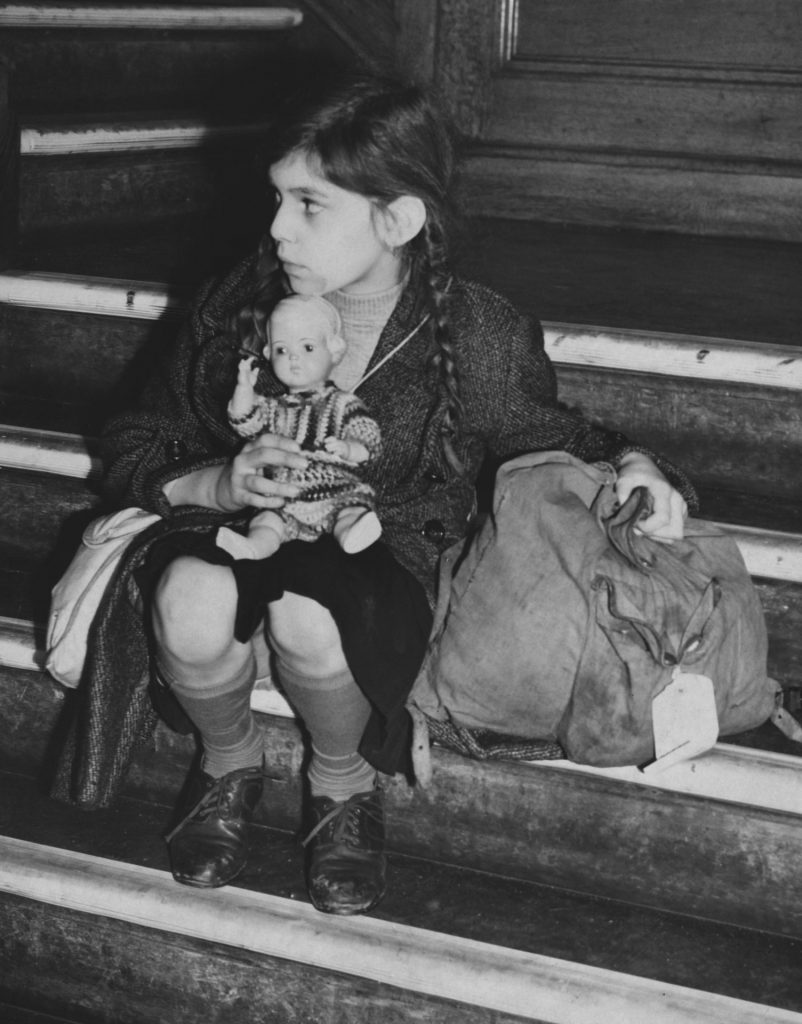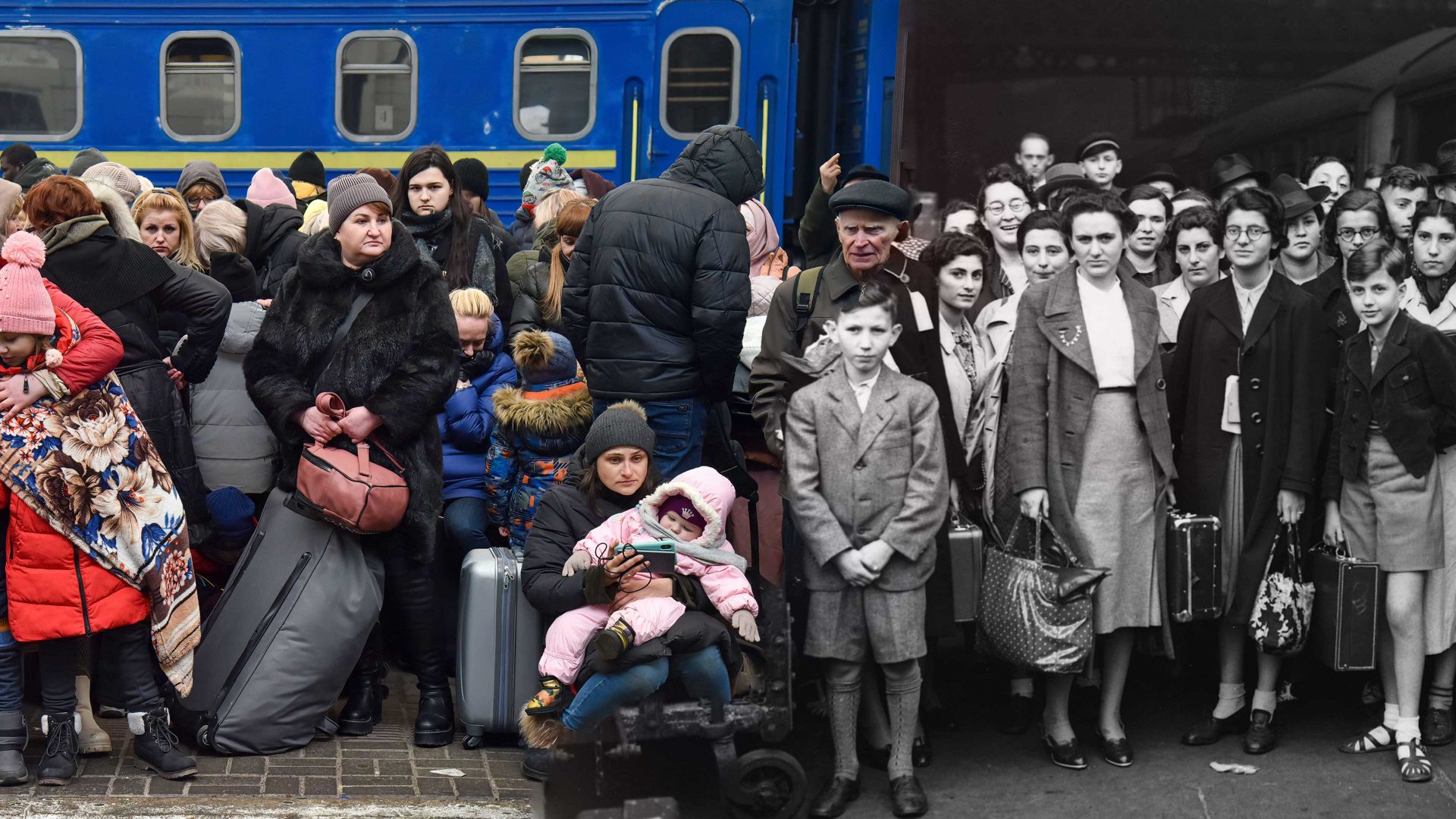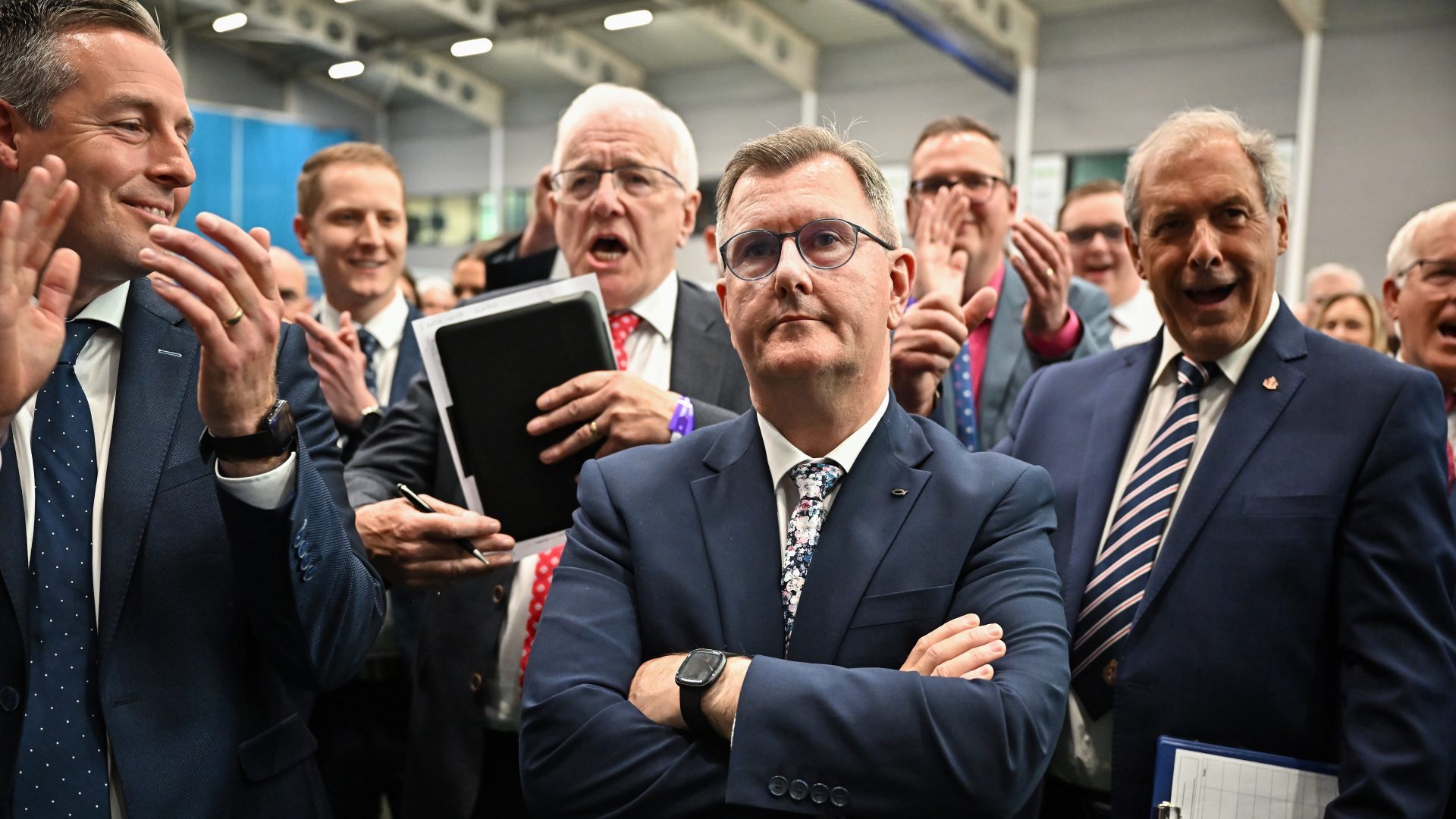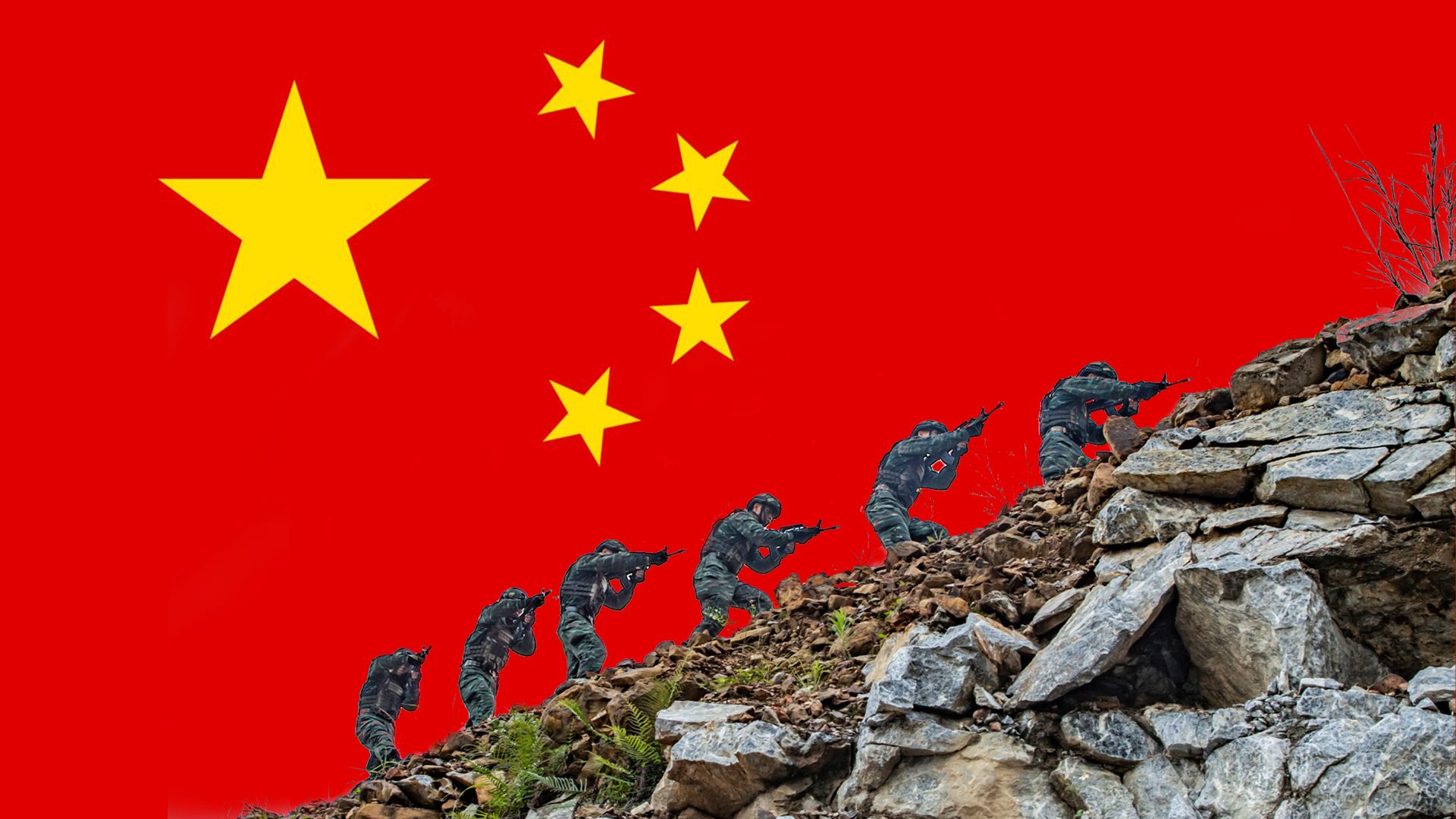My father last saw his parents on May 10, 1939, the day he escaped Nazi Germany. But though he kept their photograph on his bedside table for the rest of his life, he rarely spoke of them, and almost never about the fate that overtook them two years later.
It was only long after he died in 2004 that I began to feel an increasingly insistent need to know what had happened to my grandparents and, above all, to understand why, in November 1941, their neighbours put them on the train that carried them from their home in Bamberg to their deaths in Latvia.
My quest led me from family papers to works of scholarship, from archives to unpublished memoirs and eyewitness testimony, and eventually to the writing of my book. It’s a personal homage to my lost family. But I hope it’s more than that, for I was also driven by a powerful, external stimulus: what I have written is as much about the present and the future as it is about the past.
My view of the world has changed over the last few years. The UK’s decision to leave the European Union in June 2016 was deeply disillusioning. The outcome of the US general election just five months later was a shock of equal magnitude. I was visited by an unexpected and most unwelcome thought: for the first time in my life, the world may not be the safe place for people like me, and for others, that I had always taken it to be. The years since have provided little comfort.
And increasingly the events of today reflect those of the past – through a past which we have selectively curated and from which we have learned less than we think. We might not see, for example, that the way the UK government treats refugees in 2022, including those from Ukraine, mirrors only too closely its attitude to Jews desperately seeking to flee conflict and persecution in the 1930s.
My father was one of the fortunate few. Of the 500,000 who applied for British visas, only 70,000 were allowed in. My grandparents were not among them. Nearing their 60s, they had nothing of value to offer Britain, or the US, or anywhere else. By the time my father left Germany, most avenues of emigration had been sealed shut, if not by the Nazis then by the democracies to which those in mortal danger looked for refuge. By the end of 1939, there were still 200,000 Jews in Germany and a further 57,000 in Austria. Many had tried to emigrate but by then they were caught in a bureaucratic trap: they could only leave if they gave up their assets to the Nazis, but applicants without assets could not secure entry to countries of sanctuary. In some cases, visas would be granted only to those who had booked passage on a ship; but they could not book passage without a visa.
Though the plight of German Jews was clearly desperate in 1938 and 1939, the US and Britain did little either to increase the numbers they were prepared to take or to simplify their deliberately byzantine visa application processes. Throughout the 1930s, the US immigration quota for Germany stood at around 27,000 a year. But between 1933 and 1937, only 33,000 German Jews were granted entry – some 100,000 fewer than the quotas allowed. Public opinion was not sympathetic: a poll conducted in 1938 found that 58% of Americans thought that German Jews were at least partly responsible for their own misfortunes.
The Evian Conference, convened in July 1938 to discuss the refugee crisis, was not designed to provide relief for persecuted Jews – far from it. Even before its proceedings opened, Britain and the US had agreed to coordinate resistance to increased immigration to each other’s countries or to British Mandate Palestine. Other governments were reassured that they would not be expected to take up the slack. Only the Dominican Republic and Costa Rica offered to open their borders to significant Jewish immigration.
At Evian, for neither the first nor the last time, both the British and French delegations insisted that their countries were already fully populated. A fortnight later, the Observer, falsely claiming that “Britain now has more Jews than Germany ever had”, concluded with breathtaking cynicism that Jews might be better off in Nazi Germany for, “if a further accretion of, say, 100,000 of them come into the country, how could the danger be diverted of an anti-Jewish feeling here?”
In Britain, as in America, immigrants were regarded as undesirable competition for jobs; refugees were allowed in only if they undertook not to work without the permission of the Ministry of Labour. There were two exceptions: for those Jews able to bring with them businesses that would provide employment for British citizens and for those prepared to enter domestic service. Even if it were granted, permission to remain in the UK was temporary and the costs of dependency were to be borne solely by the existing Anglo-Jewish community and its charities.
Even when, after Kristallnacht in November 1938, Britain relaxed its restrictions to provide urgent refuge for some 10,000 children, the Kindertransport scheme, so often celebrated as evidence of Britain’s exemplary generosity, was hedged about with terms and conditions. The taxpayer was not to be troubled: charities and private benefactors had to guarantee payment for each child’s fare, care, education and, when the “crisis was over”, their eventual return to their families.

But the Kindertransport in effect made orphans of many of the children it saved, for their parents were explicitly prevented from accompanying them. They had to remain in Nazi Europe. When the war was over, there were few reunions.
What’s more, hundreds of those children were later interned by the British as “enemy aliens”, as was my father. At the outbreak of war, he had volunteered to join the army but was rejected because of his “suspect background”. Then, in May 1940, as the Nazis invaded France and the Low Countries, this German Jewish refugee, survivor of Buchenwald, was arrested as a potential fifth columnist and shipped to a camp in Canada. There he remained a prisoner for two long years, undifferentiated from committed Nazis and German POWs, before he was finally released, and he enlisted.
Now, 80 years later, our government tells us that, in the interests of national security, traumatised Ukrainian women and children must be regarded as potential spies and made to jump through bureaucratic hoops few can negotiate before they can hope to secure a visa which no other country requires of them. It may appear that the government is out of step with overwhelming public sympathy for the plight of Ukrainian refugees. But Conservative ministers know their constituency. That much is clear from the launch, in the run-up to the local elections, of the home secretary’s repellent plan to deport asylum seekers to Rwanda.
Indeed, we should not overlook the parallels in attitudes to immigrants, refugees and asylum-seekers between some in Brexit Britain and the little Englanders of the 1930s and 1940s. Even as the war ended and news of the horrors of the Nazi death camps filtered through to the British public, my father wrote to my mother from his army posting in India: “Over the BBC I heard a news item that the workers of a Birmingham factory were so ‘shocked’ at Nazi atrocities that they adopted a resolution against the employment of German refugees!” A few months later, when there could have been no doubt about the scale of those atrocities, my mother reported that “in Hampstead they signed a petition that all refugees should be sent back to Germany and Austria”.
The government gauged the public mood. Echoing the pre-war Observer, cabinet minutes from 1945 warned that “the admission of a further batch of refugees, many of whom would be Jews, might provoke strong reactions… There was a real risk of a wave of antisemitic feeling in this country.” And just as ministers argued then that it was really in their own interests that stateless Jews be denied refuge, their successors claim today that their Rwandan scheme is actually designed to protect asylum-seekers from the people smugglers. The hypocrisy is the same and so is its effect: the way is barred.
None of this, then or now, was new. When Jews fled to Britain to escape the murderous pogroms in tsarist Russia at the end of the 19th century, they were received by some with generosity but by others with thinly disguised contempt.
In 1892, the anti-immigration campaigner WH Wilkins, by no means a lone voice, speculated that Russian Jews were the architects of their own persecution: “With an imperfect knowledge of the facts we are hardly in a position to judge of the action which the Russian government has seen fit to take against its Jewish subjects.” Now, in strikingly similar terms, Putin’s apologists on both the radical left and right insist that, before we seek to aid the victims of Russia’s war on Ukraine, we should see things from the perspective of a psychopathic war criminal in the Kremlin.
What has changed in our attitudes to refugees, Jewish, Ukrainian or other? A country that prides itself on its traditions of toleration and sanctuary voted in 2016 to “take back control” of its borders, not least in order to keep out immigrants: no matter that they may be fleeing for their lives from countries they do not wish to leave; no matter what they may have to contribute to our culture, our economy and our common humanity; no matter our moral duty.
Now as then, those few asylum seekers we admit must do the most menial work. They must not be allowed to compete for British jobs, neither should they rely for their welfare on the British taxpayer. The same newspapers warn us that our culture and values are under threat, that our schools and hospitals are being swamped and that our country is “full up”. The same kind of second-rate politicians build their careers on unprincipled populism. The same parties of government equivocate in the face of public opinion.
We are living in times of great turbulence and uncertainty, when, once again, simple solutions to complex problems appear so alluring to so many. All over Europe, in the US, in Russia and elsewhere, populist parties and authoritarian leaders – nationalist, isolationist, anti-immigrant and often both racist and antisemitic – are gaining ground. The politics of unreason are growing in appeal; democracy, it seems, is no longer inviolable.
Perhaps we have entered an inevitable historical cycle of doubt and uncertainty from which our democratic principles will emerge reinforced and reasserted. I hope that history will show that I have overreacted. Certainly, I don’t feel at imminent risk. But at what point in my grandparents’ lives did they realise that their world had irreversibly changed and that they were in jeopardy? And at what point did they know that it was too late to save themselves?
Against such a background, I have sought in my book to understand and, perhaps, to explain why and how my family’s story is relevant to what we think we know about our own history, and to the beliefs – the truths, the half-truths and the falsehoods – that shape our lives and those of others today.
Peter Bradley is a former Labour MP and author of The Last Train – A Family History of the Final Solution, to be published by HarperNorth on May 12



